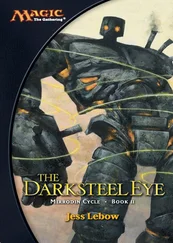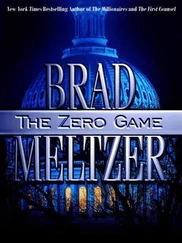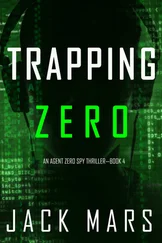“Please,” he said over the phone. “This isn’t the best time-”
“They said you’re organizing and funding a cell here. That you are buying explosives.”
“Ri-i-ight,” the man said, as if this were obvious. “With the money you gave me. I’m sorry. Did you need a receipt?”
“The money I gave you?” Remy began to feel off-balance again. He recalled the envelope of cash. “But… they said you were…”
“That I was what?” he asked.
“…Jaguar,” Remy said quietly.
“Jaguar? No. Really?” The man scoffed. “That’s awful. God, is the entire agency made up of morons? Look, I appreciate that you don’t want to endanger your work by telling those amateurs about me… But come on – Jaguar ? How could you let them do that to me?”
Remy slumped against a tree.
“What about Iceman. Or something that reflects my education – Doc, for example? Tell them that I find Jaguar culturally and racially offensive. Tell them you’re worried that I’ll file a civil rights complaint. That ought to scare those officious assholes.”
“I don’t-” Remy touched his forehead, trying to put it together. “Are you saying that… you work for us?”
“Us?” He laughed. “I’m sorry, but your idea of us tends to be a little bit fluid, my friend. Either you’re with us or… what? You switch sides indiscriminately… arm your enemies and wonder why you get shot with your own guns. I’m sorry, but history doesn’t break into your little four-year election cycles. Are you with us? ” The man laughed, winding down. “May as well ask if I am aligned with the wind.”
“Look. I just need to know-” Remy squeezed his good eye shut. “Are you…” He couldn’t find the words. “…trying to hurt people?”
“Which people?”
“Innocent people,” Remy gritted.
The man laughed. “That doesn’t exactly narrow it down.”
“I’m going crazy,” Remy said.
“Yes… I used to think that,” said the man on the phone. “The sorrow would come over me. Like a fever. And I would scratch at my own face, tear at my skin until the pain and the rage felt like one thing… then, I used to wonder if I’d gone crazy. But other times-” There was a rustling, and then he said, “Okay. Your boy picked up the package. He’s on the move again. Your turn.”
Remy spun around the tree and saw Kamal leave the ornate building, this time with a larger package, in a shoulder athletic bag. Remy began following him again on foot, though he was unsure what to do. He still had the phone at his ear.
“Other times,” Jaguar said over the phone, “don’t you wonder if they’re all crazy? With their stone pilgrims, and their marble soldiers, with their virgins in paradise and their demons in smoke? Sometimes I think I’m the last sane person on Earth.”
And then-
REMY SPRINTED down an alley, around a pile of cardboard, a bicycle rack, and some plastic garbage cans. He came out on the narrow street, between the fire escapes of two old tenements with glossy new entryways. He stopped and looked around. Was this where he was running? Something, the activity, his racing heart, caused the flecks in his good eye to swarm like bees. His left eye – black as a painted window – throbbed behind the gauze. Remy stared around at the street in front of him, panting. He looked left. And then right.
And then Kamal burst around the corner to his left, looking over his shoulder as he sprinted down the sidewalk, carrying the athletic bag like a huge football. As Remy watched, the man darted between two parked cars and ran into the street. Remy stood tensed on the sidewalk, in the middle of the block, unsure what to do – until he saw Markham dart around the same corner, waving a gun and sprinting twenty paces behind Kamal, but losing ground on him. Remy stepped around a parked car. Kamal saw him and tried to veer, but Remy jumped, hit Kamal full with his shoulder, and knocked the smaller man to the street. The athletic bag skidded beneath a car. Kamal started to get up, but Remy was on him, pushing him facedown to the blacktop, a knee in Kamal’s back. Remy grabbed Kamal’s wrist, and he said calmly, “Give me your other arm.” Beads of sweat clung to his cheek. Kamal pulled his other arm out and Remy wrenched it behind the man’s back, causing him to groan.
“Nice work,” Markham said as he came up, panting. He pulled a plastic pair of zip-ties from his pocket and flipped them to Remy, who put them over Kamal’s wrists, pushed the ends through, and zipped them tight. Markham reached under the car and pulled out the athletic bag. “What do we have here? A little present for the great Satan?”
“You are making a mistake,” Kamal said, his face pressed against the street.
“The only mistake I made was not shooting you in the ass when you ran away from me,” Markham said. “And I heard you throw like a girl.”
“A mistake,” Kamal repeated, pushing his lips back over his jutting teeth.
And then Remy heard tires screaming and a car barreled around the corner and squealed to a halt in front of them, bucking like a horse before it finally stopped. It was a dented silver gypsy cab with brand new tires. Remy watched as two thick guys in sweatshirts and ball caps climbed out of the car, guns drawn, white wires dangling from their ears. One of the guys was the greasy homeless man from the park.
“Get the fuck off of him,” said the other man – the familiar agent with the crooked mustache and the BUFF ball cap.
Markham was still in the street, holding the athletic bag. “Who are you?” he asked.
Buff held up a small wallet for Markham to read. “Why don’t you tell us what you’re doing hassling our CI?” he said.
“What?” Markham looked dumbfounded. Remy almost felt bad for him. “He’s a bureau informant?”
“Goddamn it, Remy,” Buff said. “We’re this close to penetrating this group of lunatics and you come along and nearly fuck it all up.”
“You know this guy?” Markham asked Remy.
“So help me,” Buff said to Markham, “if you endanger our operation, you’ll be pissing through a tube the rest of your life. Do you understand me?”
Remy, for once, felt ahead of events. You can’t beat this thing, he thought. You can want to do the right thing; you can vow to pay attention, to focus, to connect the dots. But once you start down this path, it really doesn’t matter. Every path leads to the same place, events like water circling toward a drain. Without the slightest hesitation, Remy got off Kamal, cut the plastic handcuffs off his wrists, and helped him off the ground.
Kamal’s eyes were misty. “These animals killed my brother,” he muttered to Remy. “I wouldn’t help them, so they killed Assan. These are not Muslims. They are animals. I would do anything to stop them.”
And that’s when Markham finally caught up. “Oh, for Christ’s sake.” He threw his hands in the air and spun away, like a pitcher who has just walked the tying run. “Is there anyone in this cell who happens not to be a government informant?”
THE CUBICLES were empty, the lights off. Remy checked his watch. It was after ten – must be nighttime – and the filing room staff was apparently off duty. He stepped up onto a chair and saw that he was in the center of this vast room, with only the pillars every fifteen or twenty feet breaking up the maze of cubicles. At each corner of the room a doorway led out, and above each doorway was a billboard-size inspirational sign quoting The President.
Remy stepped off the chair and looked around. He was standing in a cubicle. There was a desk with a computer, two filing cabinets, and a wastepaper basket. A frame containing a studio picture of a young man in a flannel shirt with two children was magneted to the desk, next to a stack of paperwork.
Читать дальше












